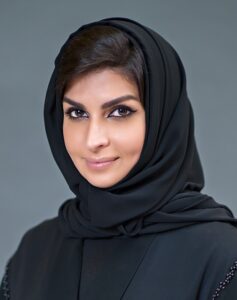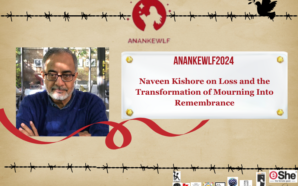As countries around the world begin to ease self-imposed restrictions to contain the spread of COVID-19, they face a new challenge: reviving their economies and societies, while attempting to restore people’s living standards and the privileges they enjoyed before the pandemic.
Of course, in many parts of the world, girls and women were already fighting for equality and basic rights — a fight the pandemic has made even more difficult. Attaining gender parity is one of the United Nations’ Sustainable Development Goals, recognizing that gender equality is not only a fundamental human right, but essential for a peaceful, prosperous and sustainable world.

Dr. Lamya Nawaf Fawwaz, Executive Director for Brand & Strategic Initiatives at Masdar.
However, the COVID-19 pandemic has deepened pre-existing economic, social and health-related inequalities already faced by women around the world, according to a recent report from the United Nations. Among other issues, women and girls tend to earn less (and hence save less), hold less stable jobs, and have to take on more unpaid care than men, the report warns.
This pandemic is also highlighting deeper issues; greater action is needed to support the education, empowerment and engagement of young women. Equipped with the right skills and resources, young women can effectively lead the change to a more sustainable world – if they are given the opportunity.
Reassuringly today, more girls than ever before are going to school during their formative years. However, 62 million girls still have no access to education. In Central Africa alone, 28 million young girls are unable to receive a basic education.
Girls growing up in impoverished societies face a number of unique challenges, all which impact their ability to enter and stay in school throughout their adolescent years. These challenges include poverty, housework or finding employment to support their families. In these cases, going to school becomes an additional responsibility that many of these girls cannot handle.
But what if education is the solution to many of these challenges?
Right To Education, a global human rights organization, describes education as a ‘multiplier right’, an enabler for women and girls to benefit and exercise their rights in key areas – including work, property, politics and justice, freedom from violence and health.
Consistent schooling also provides a way for girls to become self-sufficient.
The World Bank Group estimates that just one year of secondary education can translate to a 25 percent increase in wages later in life. Not only will girls’ education increase personal wealth but it can also improve a country’s Gross Domestic Product (GDP). In fact, the U.S. Agency for International Development (USAID) forecasts that by educating just 10 percent more adolescent girls, a country’s GDP can increase by an average of three percent.
By ensuring that girls have access to quality education in their formative years, we can improve rates of poverty, ensure greater economic opportunities as well as work to close the gender gap. The Council on Foreign Relations estimates that the gender gap in education costs the world between USD$15 to USD$30 trillion in human capital.
Here in the UAE, we have seen the true economic, political and social impact of generations of educated and empowered girls and women. Over half of students studying in science, technology, engineering and mathematics – the STEM subjects – are female. This is reflected in the number of women that go on to work in related industries, which is well over 60 percent. With these promising statistics, there is no question about the power of education, as well as the importance of representation in these industries.
With our rapidly changing world, we now face two challenges: ensuring that millions of girls have access to basic education, as well as closing the gender gap in STEM education.
Future jobs will require a new set of skills including digital literacy, entrepreneurship, innovation and artificial intelligence (AI). By ensuring that girls have equal opportunities to learn and excel in these skills, we can create skilled workers that can participate and contribute to the new digital economy.
Back in January, the Women in Sustainability, Environment and Renewable Energy platform hosted its annual forum at Abu Dhabi Sustainability Week. The forum explored the role that digitalization and AI can play in female empowerment. Based on the findings of the Forum, a white paper titled “Artificial Intelligence + Gender Parity, A WiSER Perspective”, was published, outlining key discussions, insights from influential attendees, country perspectives on the topic as well as the 10 key findings necessary to achieve gender equality.
Some of these findings include better support in education, familial influence, mentoring, training and networking opportunities, as well as a level playing field. Education is both the foundation and solution for many of these findings. As our founding father Sheikh Zayed said: “The woman is half of the society; any country which pursues development should not leave her in poverty or illiteracy.”
We all have a role to play in ensuring that girls receive the education they need to succeed. They must be empowered to become informed, self-sufficient, and realize their role as an integral part of society. Right now, societies around the world are looking at how they can recover from the unprecedented challenge of COVID-19. If they are going to succeed, they can’t leave half their population behind.
This year, ADSW 2021 will explore through a series of high-level virtual events the social, economic and technological opportunities to achieve a ‘green recovery’ post COVID-19.
About the ADSW 2021:
Hosted by Masdar, ADSW 2021 will explore through a series of high-level virtual events the social, economic and technological opportunities to achieve a ‘green recovery’ post COVID-19.
For over a decade, Abu Dhabi has provided a sustainable platform for the global community that has grown through its initiatives and events to emerge as a thought leader and catalyst that accelerates sustainable development around the world.
ADSW 2020 welcomed 45,000 attendees from over 170 countries, including the UAE’s leadership, 10 heads of state, 180 international ministers, and over 500 representatives from the world’s media.
About WiSER
The Women in Sustainability, Environment and Renewable Energy (WiSER), a Masdar-led initiative and impact-focused platform dedicated to inspiring women and girls to play an active role in addressing global sustainability challenges through the advancement of innovation.











